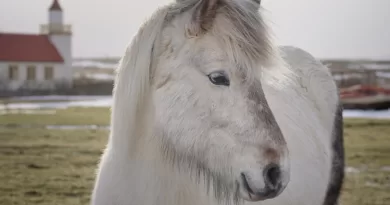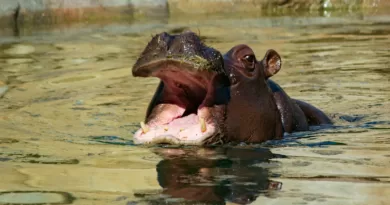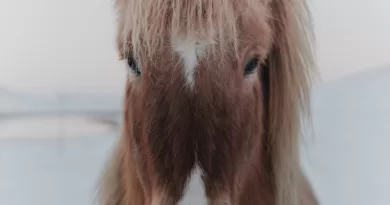How to Keep Horse Flies Away From Pool
Identifying Horse Flies and Their Habits
Horse flies are large, bee-like insects that can be quite bothersome to both humans and animals. Identifying these winged pests is crucial in order to effectively manage their presence. One characteristic that sets horse flies apart is their size, as they are typically larger than most other common flies. They have large, colorful eyes that meet in the middle, giving them a distinct appearance. Another identifying feature of horse flies is their biting mouthparts, which are sharp and powerful. These flies are known for their painful bites, which can leave itchy welts on the skin. Understanding the habits of horse flies is equally important in dealing with them. These flies are most active during the day, especially in warm and sunny weather. They are attracted to areas with water sources, such as ponds, swamps, and even pools. Horse flies breed in moist areas, and their larvae live in water or damp soil, further emphasizing the importance of targeting standing water sources as a means of control. Horse flies are attracted to human and animal movement, as well as carbon dioxide, heat, and dark colors, making them particularly bothersome during outdoor activities. It is crucial to take appropriate measures to identify and manage horse flies in order to minimize their impact on enjoyment of outdoor spaces.
Understanding the Attraction of Horse Flies to Pools
When it comes to horse flies, it seems that pools are an irresistible magnet. These pesky creatures are drawn to pools for a variety of reasons, starting with the obvious presence of water. Horse flies are known to lay their eggs near bodies of water, making pools an ideal breeding ground. Additionally, the heat that emanates from the water surface attracts horse flies, as they are drawn to warmth and moisture.
Furthermore, horse flies are attracted to the movement and reflections that pools create. The rippling water and shiny surfaces mimic the visual cues that these insects seek when searching for a potential host. The reflected light can be particularly alluring to female horse flies, as they typically require a blood meal in order to reproduce. The combination of water, heat, and visual stimuli make pools a prime target for these persistent pests.
Removing Standing Water Sources
To effectively control horse flies around pools, it is crucial to remove any standing water sources in the surrounding area. Horse flies are attracted to stagnant water as it serves as a breeding ground for their larvae. By eliminating these water sources, you can significantly reduce the horse fly population in your vicinity.
Take a walk around your property to identify any areas where water may be accumulating. Look for items such as buckets, containers, or even tarps that can collect rainwater. Emptying and properly storing these items, or simply turning them upside down, will prevent water from accumulating and becoming a breeding site for horse flies. Additionally, ensure that your gutters are clean and free from debris to avoid water buildup. By diligently removing standing water sources, you can decrease the likelihood of horse flies being attracted to your pool area.
Maintaining Proper Pool Maintenance
Regular pool maintenance is crucial not only for the overall cleanliness and longevity of the pool, but also for deterring horse flies from infesting the area. Firstly, it is essential to ensure a proper chlorine balance in the pool water. Horse flies are attracted to stagnant water sources and a well-maintained pool with the right chemical balance decreases the likelihood of attracting these pests. Regularly testing the water and adjusting chlorine levels accordingly is a simple yet effective step in minimizing the presence of horse flies.
Additionally, keeping the pool area clean and free of debris is key in preventing horse flies from finding breeding grounds nearby. Regularly skimming the pool surface and removing any leaves, twigs, or other organic matter will discourage horse flies from gathering in the vicinity. Moreover, it is important to clean and empty pool filters and skimmers on a routine basis to keep them functioning optimally. Horse flies are more attracted to pools with dirty filters, so proper maintenance of these components is vital for the success of horse fly prevention efforts.
Installing Pool Covers or Screens
Pool covers and screens are essential tools in preventing horse flies from infesting your pool area. By installing a pool cover or screen, you create a physical barrier that prevents these pests from accessing the water. Pool covers, especially those made of durable materials like vinyl or mesh, can effectively keep horse flies at bay by sealing off the water and denying them a breeding ground. Screens, on the other hand, act as a protective shield that covers the pool area, preventing horse flies from entering and disturbing your time by the pool.
When choosing a pool cover or screen, it is important to consider the durability and effectiveness of the material used. Ensure that the cover or screen is strong enough to withstand external elements such as wind and debris, as well as the persistent attempts of horse flies to access the water. Additionally, the cover or screen should be properly fitted to the pool to ensure there are no gaps or openings that horse flies can exploit. By investing in a high-quality pool cover or screen, you can significantly reduce the likelihood of horse fly infestations and enjoy a peaceful and bug-free pool experience.
Utilizing Essential Oils as Natural Repellents
Essential oils have long been praised for their natural healing properties, but did you know they can also be used as effective horse fly repellents? These oils, derived from various plants and flowers, contain potent chemical compounds that act as deterrents for biting insects. Lavender, eucalyptus, citronella, and peppermint oils are particularly effective in repelling horse flies. Simply dilute a few drops of your chosen oil in water and apply it to your skin or clothing before heading outdoors. The strong scent of these oils will help keep horse flies at bay, allowing you to enjoy your time outside without the nuisance of these pesky insects.
Aside from their repelling properties, essential oils also offer a more natural and eco-friendly alternative to chemical-based repellents. They are generally safe to use and have a pleasant fragrance, making them a popular choice for those who prefer natural solutions. However, it’s important to keep in mind that essential oils may need to be reapplied more frequently than traditional repellents, as their effectiveness tends to diminish over time. Additionally, it’s always recommended to perform a patch test before applying any essential oil to ensure you don’t have an adverse reaction. With proper use and a little experimentation, utilizing essential oils as natural repellents can be an effective way to keep horse flies at bay while enjoying the great outdoors.
Creating a Horse Fly Trap
One effective method for trapping horse flies is by creating a homemade horse fly trap. This trap is designed to attract and capture the flies, reducing their population around your pool area. To create a horse fly trap, you will need a few materials such as a large bucket or container, a dark black or blue ball or balloon, and a sticky substance like petroleum jelly.
First, start by selecting a suitable location for the trap near your pool area, preferably in a sunny spot where horse flies are frequently seen. Next, fill the bucket or container halfway with water to create a breeding ground for the flies. Attach the dark ball or balloon to the inside of the bucket, just above the water surface. The dark color will attract the horse flies to the trap. Finally, apply a generous layer of sticky substance like petroleum jelly on the inside of the bucket, just below the ball or balloon. When the horse flies are drawn to the dark object, they will get stuck in the sticky substance, preventing them from escaping.
Implementing Fly Predators or Parasitic Wasps
Fly predators and parasitic wasps are effective natural solutions for controlling horse flies around pools. These beneficial insects work by parasitizing the larvae and pupae of horse flies, disrupting their life cycle and reducing their population. Fly predators are tiny, non-stinging wasps that feed on the eggs and larvae of horse flies. They are typically shipped in small cups and can be easily released near the pool area. Parasitic wasps, on the other hand, lay their eggs inside the horse fly pupae, causing them to die before they can hatch into adult flies. These natural predators can help keep the horse fly population under control without the use of harmful chemicals.
Implementing fly predators or parasitic wasps in the area around the pool can be an effective long-term solution for reducing horse fly numbers. They are safe to use around people, pets, and other beneficial insects, making them a suitable option for those who want to avoid harsh chemical sprays. However, it’s important to note that these predators and wasps are most effective when used as part of an integrated pest management program. This means that other control methods, such as removing standing water sources, maintaining proper pool maintenance, and utilizing essential oils as natural repellents, should also be employed to achieve optimal results in managing horse flies around pools.
– Fly predators and parasitic wasps are natural solutions for controlling horse flies around pools
– They work by parasitizing the larvae and pupae of horse flies, disrupting their life cycle and reducing their population
– Fly predators are tiny, non-stinging wasps that feed on the eggs and larvae of horse flies
– Parasitic wasps lay their eggs inside the horse fly pupae, causing them to die before they can hatch into adult flies
– These natural predators can help keep the horse fly population under control without harmful chemicals
Implementing fly predators or parasitic wasps in the area around the pool can be an effective long-term solution for reducing horse fly numbers. Some key points to consider include:
1. Safe to use: These beneficial insects are safe to use around people, pets, and other beneficial insects.
2. Avoid harsh chemical sprays: Using fly predators or parasitic wasps allows individuals to avoid using potentially harmful chemical sprays.
3. Integrated pest management program: For optimal results in managing horse flies around pools, it is important to incorporate these natural solutions as part of an integrated pest management program.
4. Other control methods: In addition to using predator insects, other control methods such as removing standing water sources should also be employed.
5. Proper pool maintenance: Maintaining proper pool maintenance is crucial in preventing breeding grounds for horse flies.
6. Natural repellents: Utilizing essential oils as natural repellents can further enhance the effectiveness of fly predators or parasitic wasps.
By combining these strategies together with implementing predator insects like fly predators or parasitic wasps, individuals can effectively manage and reduce the presence of annoying horse flies around pools while promoting a safer environment for everyone involved.
Encouraging Natural Predators in the Area
Creating a balanced ecosystem within your property can help control horse flies naturally. Encouraging natural predators in the area is one effective method to reduce their population. Birds such as swallows, purple martins, and barn owls are known to feed on horse flies. By providing nesting boxes or suitable habitats for these birds, you can attract them to your property and encourage them to prey on the flies. Similarly, attracting bats with bat houses can also help in reducing horse fly populations, as bats are known to consume large numbers of insects, including horse flies.
Another natural predator that can help control horse flies is dragonflies. These agile insects are highly efficient at catching and consuming flying insects, including horse flies. Creating a suitable environment for dragonflies by installing a water feature or pond can attract them to your property. Dragonflies require water sources for their larval stage, so having a pond or water garden will provide a breeding habitat for them. By incorporating plants and structures that dragonflies are attracted to, such as water lilies and rocks, you can create an inviting area for them to live and hunt, ultimately helping to keep horse flies in check.
Regularly Cleaning and Emptying Pool Filters and Skimmers
Regularly cleaning and emptying pool filters and skimmers is an essential step in maintaining a clean and hygienic swimming pool environment. Over time, debris, leaves, insects, and other organic matter can accumulate in the filters and skimmers, causing them to become clogged and less effective. This not only affects the water quality but also provides a breeding ground for horse flies and other pests. By regularly cleaning and emptying the filters and skimmers, you can ensure that the water is free from unwanted debris, reducing the attractiveness of the pool to horse flies.
Cleaning the pool filters and skimmers should be done on a routine basis, depending on the frequency of pool usage and the surrounding environment. Generally, it is recommended to clean the filters and skimmers at least once a week during peak pool season. This can be done by removing the filter cartridges or grids, rinsing them thoroughly with a hose, and brushing off any stubborn debris. Emptying the skimmer baskets is also important to prevent them from overflowing and causing blockages. By incorporating this simple maintenance task into your pool care routine, you can help minimize the presence of horse flies and ensure a more enjoyable swimming experience.
How do I identify horse flies and their habits?
Horse flies are large, dark-colored flies with transparent wings. They are known for their painful bites and are often found near water sources, such as pools, rivers, and lakes.
Why are horse flies attracted to pools?
Horse flies are attracted to pools because they are attracted to the reflection of light on the water. Additionally, pools provide a source of standing water, which horse flies use for breeding.
How can I remove standing water sources to deter horse flies?
To deter horse flies, regularly check your property for any standing water sources, such as birdbaths, buckets, or flowerpots. Empty these containers regularly to eliminate potential breeding sites.
What is the importance of maintaining proper pool maintenance?
Maintaining proper pool maintenance, such as regularly cleaning and treating the water, helps reduce horse fly attraction. Clean pools are less likely to attract horse flies looking for a breeding site.
Can pool covers or screens help prevent horse flies?
Yes, installing pool covers or screens can help prevent horse flies from accessing the water. This physical barrier can significantly reduce the number of horse flies in and around the pool.
Can essential oils be used as natural horse fly repellents?
Yes, certain essential oils, such as citronella, eucalyptus, and lavender, can act as natural horse fly repellents. Dilute these oils in water and spray them around the pool area to deter horse flies.
How can I create a horse fly trap?
To create a horse fly trap, you can use a large bucket or container, fill it with a mixture of water and a sweet attractant like sugar or fruit juice, and place it near the pool. The flies will be attracted to the trap and get caught.
What are fly predators or parasitic wasps, and how can they help with horse flies?
Fly predators or parasitic wasps are beneficial insects that specifically target flies and their larvae. By releasing these predators around your property, they can help control the horse fly population.
How can I encourage natural predators in the area to control horse flies?
By creating a suitable habitat for natural predators, such as birds, bats, and dragonflies, you can encourage them to feed on horse flies and help control their population.
How often should pool filters and skimmers be cleaned and emptied?
It is recommended to clean and empty pool filters and skimmers at least once a week to remove any debris or organic matter that may attract horse flies. Regular maintenance will help keep the pool area less attractive to these pests.




